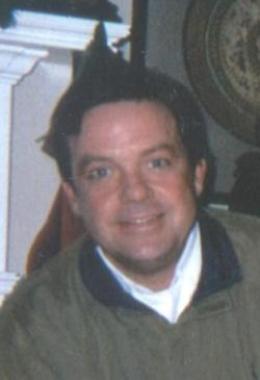
When it comes to modern young-earth creationist literature, there is, to coin a phrase, no new thing under the sun. The same old long-ago-debunked claims appear and reappear. I couldn’t be more jaded if I were a greenish metamorphic silicate. So when a colleague in
I was immediately curious: besides being the son of a federal district court judge and a fan of Kent Hovind’s, who is Warren Overton? Alas, the question really ought to be: Who was Warren Overton? Born in
Overton’s foreword to Help! I’m Being Taught Evolution in My Earth Science Class! is dated November 2007, so I infer that he was in fact in federal prison when he wrote it. As it happens, Kent Hovind himself was behind bars then as well. On January 19, 2007, Hovind was sentenced to ten years in federal prison, having been found guilty of fifty-eight federal charges, including failing to pay payroll taxes for his employees, structuring financial transactions to avoid reporting requirements, and “corruptly endeavor[ing] to obstruct and impede the due administration of the internal revenue laws.” Released in 2015, Hovind is now back to his evangelism, although now based in
But back to Overton’s foreword. As a teenager, he relates, “I watched my dad, Federal Judge William R. Overton, agonize over the decision … I spent hours talking with my dad about the case and the struggle he endured in rendering his opinion.” You might think, given his willingness to contribute a foreword to a book by Hovind, that he would denounce his father’s opinion, but no: “I now see that his decision was right only because the wrong issues were covered in the law and the wrong issues were presented in trial.” The law, as you might recall, required equal time for “creation science”—defined rather specifically so as to include creation ex nihilo, a denial of universal common ancestry, created kinds, separate ancestry of humans and apes, a worldwide flood, and a young earth—with evolution in Arkansas’s public schools.
The younger Overton thus seems willing to disavow the Balanced Treatment Act’s approach. He offers, “The question for taxpayers to consider is not, ‘Should we teach creation in public schools?’ The real issue for the taxpayers is, ‘Should we teach lies in the public schools at the taxpayers’ expense?’” This suggests that he is retreating from the strategy of balancing the teaching of evolution with Biblical creation, creation science, or “intelligent design” to the fallback strategy of belittling evolution as scientifically controversial. In the booklet, it is Hovind’s approach as well: addressing the student asking him for aid, Hovind writes, “Your goal is to help science class be more scientific by examining and critiquing the evolution given. It just so happens that exposing lies and revealing fallacies also removes all the so-called evidence for evolution as well.”
Note, by the way, the connection with the current year’s crop of antiscience legislation—Indiana’s Senate Resolution 17, Oklahoma’s Senate Bill 393, South Dakota’s Senate Bill 55, and Texas’s House Bill 1485. Such bills ostensibly would (in the words of the
It’s no wonder that, in expressing its opposition to

